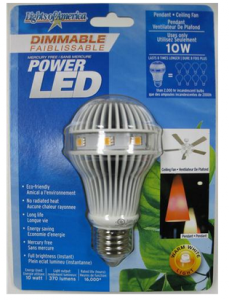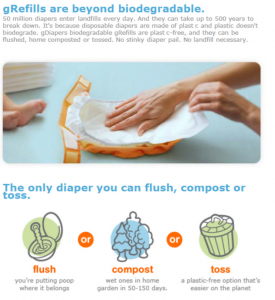Hot on the heels of our latest group presentation on Communication, Forbes has published an article that discusses the FTC’s latest efforts to protect American consumers, by cracking-down on bogus “green” claims.
The article claims that 90% of Americans consider environmental impact when making purchase decisions (I find that number incredibly high – perhaps that’s a bogus claim!). This makes lying about sustainability immensely profitable for shameless companies. The article lists several examples of companies that have recently been busted – and heavily fined – for lying about their “green” products.
Example one: Lights of America, which claimed their LED bulb would last 30,000+ hours. FTC testing found they only lasted a few thousand hours. They were fined $21m as a result.
Example two: gDiapers, which claimed their diaper liners were 100% biodegradable, and could simply be flushed down the toilet after use. The FTC found this was untrue – the diapers did not decompose within one year of hitting the landfill. Even worse, the company claimed that consumers could compost the diapers in their own gardens – but failed to disclose that this was totally not okay once the diapers were soiled with solid human waste. This company intentionally lied to moms! Their fine? $450,000.
The unfortunate thing about both of the above examples is that these companies are preying on customers who are trying to do the right thing for the environment. For some of these customers, it may have been their first attempt at shopping sustainably, and now their trust has been broken. We know that trust is so important in all consumer goods marketing, but even more important in sustainability marketing – where some customers are seriously skeptical about the products. Considering that the green industry already suffers from a lack of credibility, the ramifications of such deceit extend far beyond these companies – to the industry as a whole. This means that yet again, its up to consumers to do their research before buying green. Not so bad if you have time and resources, but for many consumers, this search cost raises the total customer cost to the point where it’s not worth it to buy green.
Well done, jerks.


